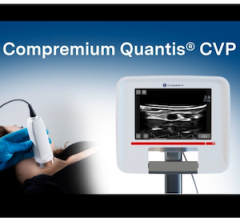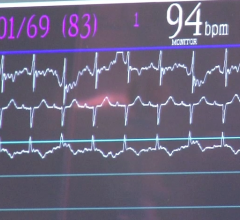March 6, 2007 — A first-of its-kind study has shown that cardiac arrhythmias, one of the most common yet potentially dangerous heart conditions affecting more than four million Americans, often go undetected despite medical monitoring, resulting in more than 780,000 hospitalizations and contributing to approximately 500,000 deaths each year, according to AHA.
The multicenter, peer-reviewed study, to be published in the March issue of the Journal of Cardiovascular Electrophysiology, compared the effectiveness of two ambulatory electrocardiographic monitoring systems in detecting arrhythmias, a condition in which a person's heartbeat is abnormal.
Three hundred patients presenting with symptoms suggestive of a cardiac arrhythmia and with previous negative or inconclusive 24-hour Holter monitoring or 24-hours of telemetry, were enrolled in the study by 17 cardiology practices. Patients were randomized to either a new technology called Mobile Cardiac Outpatient Telemetry (MCOT) by CardioNet, or to a cardiac loop event recorder.
The results of the study showed that MCOT was almost three times more effective detecting and diagnosing clinically significant arrhythmias compared to the frequently prescribed cardiac loop event recorder.
MCOT detected clinically significant arrhythmias in 41 percent of patients, compared to the cardiac loop event recorder, which detected arrhythmias in just 15 percent of patients (p less than 0.001). Furthermore, MCOT detected clinically significant atrial fibrillation in 23 percent of patients, compared to 8 percent by cardiac loop event recorders (p less than 0.001). In patients that experienced no symptoms (asymptomatic patients) during the study, the cardiac loop event recorders detected no (0%) clinically significant atrial fibrillation, compared to MCOT, which detected clinically significant atrial fibrillation in 17 percent of patients (p less than 0.001).
"These are very compelling findings that for the first time clinically validate the importance and superiority of MCOT — particularly when you consider that a meaningful percentage of patients may not experience easily detectable symptoms," said Steven A. Rothman, M.D., Mainline Arrhythmia and Cardiology Consultants, Wynnewood, PA, the principal investigator of the study. "Clearly, physicians need to more carefully consider the value of prescribing MCOT as the first-line diagnostic tool when monitoring patients for clinically significant arrhythmias.
"In the diagnosis of patients with symptoms of a cardiac arrhythmia, MCOT provides a significantly higher yield than standard cardiac loop event recorders," continued Dr. Rothman. "This result was more pronounced in patients presenting with symptoms of syncope or presyncope. MCOT was superior to cardiac loop event recorders for the detection of clinically significant arrhythmias, with a shorter time to diagnosis. The technology reduces patient error, enhances diagnostic accuracy, decreases time to diagnosis, and improves patient care."
For more information about MCOT visit www.cardionet.com.


 January 13, 2026
January 13, 2026 







